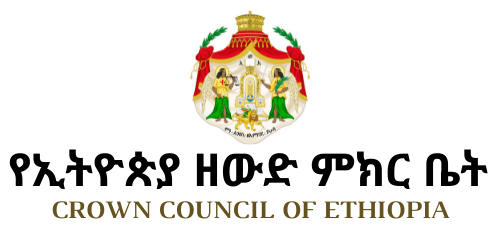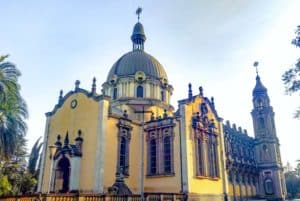BY CARA BUCKLEY cbuckley@herald.com THE MIAMI HERALD
KEY WEST – The Lion of Judah’s grandson was almost unnoticeable in the Saturday night crowd. He hung at the party’s edges, a wisp of a prince, his feet on American soil, his heart heavy with longing for a tattered kingdom half a world away.
It was Prince Ermias Selassie’s first trip to Key West. Well-heeled friends invited him so they could fete him at a party, and begin documenting on film his life story and memories of his grandfather, Haile Selassie, the late emperor of Ethiopia, and the man revered by Rastafarians as the “Black Christ.”
Selassie lives in Virginia just outside Washington, D.C., and runs a charity that brings Ethiopian students to the United States. He was 14 and at school in England when, in 1974, a military coup ousted his grandfather and, as a result, 17 members of his family were jailed.
Haile Selassie died the next year under house arrest, and the boy, exiled from his country, finished his schooling in England before studying at the University of California at Santa Barbara. He made the United States his home, but Ethiopia commanded his mind, and he watched anguished as the rest of the world came to see his homeland only as a country stricken by famine and ravaged by civil strife.
”The world has a very one-sided view of Ethiopia’s problems,” Selassie said. “If they know of them at all.”
Selassie’s grandfather, Taffari Makonnen, married an emperor’s daughter in 1911 and became a prince, or, in Ethiopian, a Ras. In 1917, he was named heir to the throne.
Meanwhile, in the United States, the Jamaican revolutionary Marcus Garvey was propounding black pride and the ”Back to Africa” movement. He told followers to look for an African king as their leader, and in the prince, Ras Taffari, they saw a prophecy fulfilled.
The Rastafarian religion was born.
Taffari was crowned emperor of Ethiopia in 1930, the 111th emperor in succession of King Solomon, a title known also as the Lion of Judah, and took the name Haile Selassie, which means “Might of the Trinity.”
Selassie quickly established himself as a progressive ruler. Prior to his coronation, he pushed to modernize Ethiopia’s government, schooling, financial, health and social services, and helped abolish the country’s slave trade in 1923 to win entry to the League of Nations.
Selassie also sought to maintain peace with Italy, whose new leader, Benito Mussolini, was hungry to expand his colonies beyond Eritrea. Italy invaded in 1935, brutalizing Ethiopians with chemical warfare.
FORCED INTO EXILE
The League of Nations condemned Italy but did nothing, and the world watched amazed as Ethiopia desperately fought back and Selassie was forced into exile. Time magazine named Selassie Man of the Year in 1936. Later that year he made an impassioned speech before the League of Nations, condemning an act of aggression against one small country as aggression against all countries, and captivating audiences worldwide.
Selassie returned from exile in 1941 to rule for over three decades until the country’s army, fueled by riots and angered by famine, banished him from power.
In 1992, Selassie’s remains were discovered buried beneath a toilet in the imperial palace. Seven years passed before they were laid to rest in a cathedral in the capital, Addis Ababa.
FIFTH IN LINE
In a family photograph taken in the early 1960s, Ermias Selassie, then just a toddler, sits at his grandfather’s feet. Dozens of family members fill out the photo: Many are now dead, others live in exile and a dozen sit on the Crown Council, which Selassie chairs.
Selassie, who is fifth in line for the crown, returned to Ethiopia this year for the first time in three decades. It was a bittersweet, powerful visit, and he was heartened to see pictures of his grandfather, once banned, adorning shop windows again.
Selassie’s friends in Key West, many of them well connected and wealthy, hope to revive Haile Selassie’s story by filming a documentary that follows Ermias retracing his grandfather’s steps in Ethiopia.
On Friday, an interview by Shirrel Rhoades, a media consultant, was taped at the community college.
On Saturday, a party was thrown in Ermias Selassie’s honor at the opulent home of his friend, the Dutch architect and philanthropist Jacob Gelt Dekker, who is interested in African issues, and John Padget, Monroe County’s superintendent of schools.
Though the Crown Council is not a government-in-exile, Selassie said he would welcome the restoration of an Ethiopian monarchy if the people so chose — not necessarily to rule, he said, but in an advisory capacity, to promote democracy and rights.
”It’s absolutely not a divine right to rule, it’s an embedded sense of responsibility to serve,” he said. “You can’t run away from things, the sense of duty, of patriotism. The country’s in your blood.”








